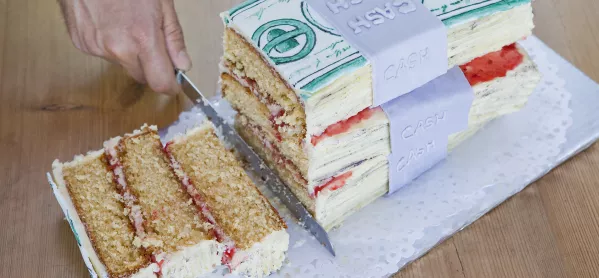Private school teachers are feeling the pinch, as rising costs eat into budgets, according to a poll of teachers - despite research showing that fees are rising far faster than average incomes.
A YouGov poll of more than 900 teachers found that the majority of teachers surveyed were working in schools with shrinking budgets and increasing class sizes.
While the problem was most acute in the state sector, 30 per cent of teachers at independent schools also reported that their budgets had been cut in the past year.
A third said their budgets had stayed the same and 28 per cent were unsure; just 9 per cent said their school’s budget had risen.
General secretary of the Independent Schools Council (ISC), Julie Robinson, said many private schools operate on a non-profit basis and have felt the pinch of rising costs.
ISC chair Barnaby Lenon has warned that many private schools are considering pulling out of the teachers’ pension scheme because of a huge potential hike in contributions next year.
“Just like other schools and organisations, schools in membership of ISC associations are subject to budgetary pressures and these are uncertain times economically,” Ms Robinson told Tes.
“The majority of ISC schools are small and do not have large foundations; they operate on a not-for-profit basis. Therefore, the combined effects of increased National Insurance, pensions and other costs mean that economies must be made and responsible organisations need to plan ahead.
“It is no surprise, therefore, that some independent schools are cutting costs to ensure sustainability.”
The cuts come despite research showing that private schools are becoming increasingly unaffordable for most people.
UCL professor Francis Green has calculated that fees are currently averaging about £17,200 per year, equivalent to about half the median UK income, compared with 20 per cent in 1980.
This increase has seen the resources gap between state and private schools expand to about 3 to 1, which Professor Green says may be the largest in the world.
Earlier this week, Gavin Horgan, head of Millfield School, which charges more than £38,000 per year for children aged 13 and over to board, acknowledged that “private school fees have risen at too fast a rate”.
“I want to cut fees by 10 per cent,” he announced. “We would be the first leading public school to cut fees for many years. I hope other public schools will follow because it is the right thing to do.”
However, although there have been isolated examples of fees being cut by other schools, Tes understands there is unlikely to be a large number following suit.
Shaun Fenton, Headmasters’ and Headmistresses’ Conference chair and head of Reigate Grammar School, told Tes: “Millfield’s position, which it is taking to manage fee levels - that’s great in its context and that’s really important.
“Other schools have been keeping fee levels down through cost-cutting measures for a number of years. In fact, the past three years have seen the lowest levels of fee rises in the sector for decades.
“It’s worth bearing in mind that, by and large, the independent sector [is made up of] not-for-profit organisations that work on a premise that all the income that is generated is reinvested. The fee levels merely reflect what it costs to run what are in many cases world-class schools.”
